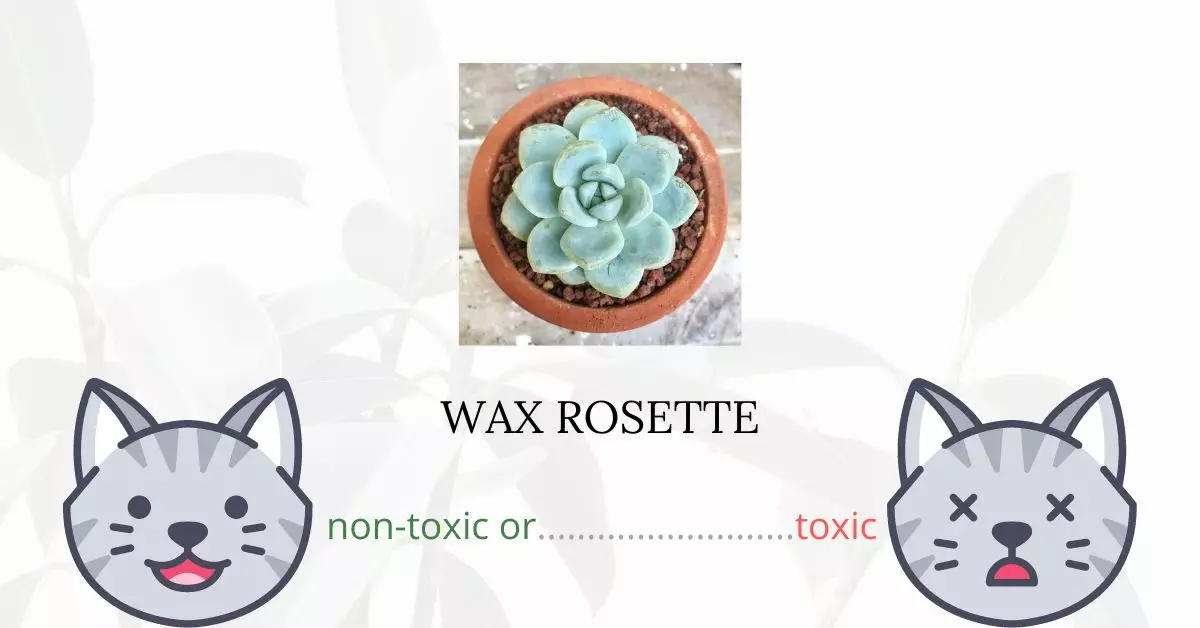No, the wax rosette is not toxic for cats. It is recognized as non-toxic alongside other Echeverria species by high-authority organizations such as the American Society for the Prevention of Cruelty to Animals (ASPCA).
This article has been crafted in close collaboration with a team of experienced DVMs (doctors of veterinary medicine). Their expertise ensures that the information we provide regarding potential risks of various plants, particularly the Wax Rosette in this context, is both accurate and current. Additionally, our research encompasses data from esteemed sources like ASPCA and PetMD to offer a comprehensive understanding of plant safety for cats.
If you’re a succulent enthusiast and a cat parent, the wax rosette can be an excellent choice for indoor greenery without concerns about your feline’s well-being.
Can Cats Eat Wax Rosette?
While Echeverria species like wax rosette are not poisonous to our feline companions, it is not advisable for cats to eat them. If your cat has accidentally nibbled on it, there should be no adverse effects since this plant is safe for them. However, eating a lot of this plant or any kind of plant may cause cats to have indigestion.
When cats have an upset stomach or indigestion, they typically show signs of diarrhea and vomiting. Since cats are carnivores, plants are tough for them to digest, thus, their bodies expel the plant materials through vomiting and excessive bowel movements. The illnesses will eventually subside once the plant materials are out of their system.
What is Wax Rosette?
Wax rosette is scientifically known as Echeveria Gilva. It is the hybrid between Echeveria Agavoides and Echeveria Elegans. You can anticipate the plant to mature and grow to a maximum height of about 15 cm (6 inches). The succulent is perfect for those who enjoy plant propagation because it is known to offset freely. The main characteristics of the plant manifest as green to light green with pink edges as it ages.
This type of succulent is distinct and blooms in the spring. You will enjoy the flowers when it blooms. It makes a lovely addition to your plant collection, especially if you display it in a lovely pot.
Succulents like Echeveria ‘Gilva’ require lots of light. Make sure this type of succulent receives sunlight when you plant it in a garden. It can be multiplied through cuttings, seeds, offsets, or leaves.
Keeping Cats Away From Wax Rosette
Because cats dislike the smell of coffee, using coffee grounds is another fantastic way to keep them away from plants. After gathering the coffee grounds in a container, scatter some of them at the base of your potted plants.
Another method you can try is putting your plants out of reach particularly if you have a cat who is skilled at jumping. You can either place your plant on top of a high cabinet or a bookshelf. Be careful to keep the plant away from the edge because you don’t want it to fall and break.
Plants to Avoid For Your Cats
If you are a cat owner and unsure if the plants growing in your yard are harmful to your cats, check out this list of toxic plants for cats. You can also check our list of non-toxic plants for cats.





